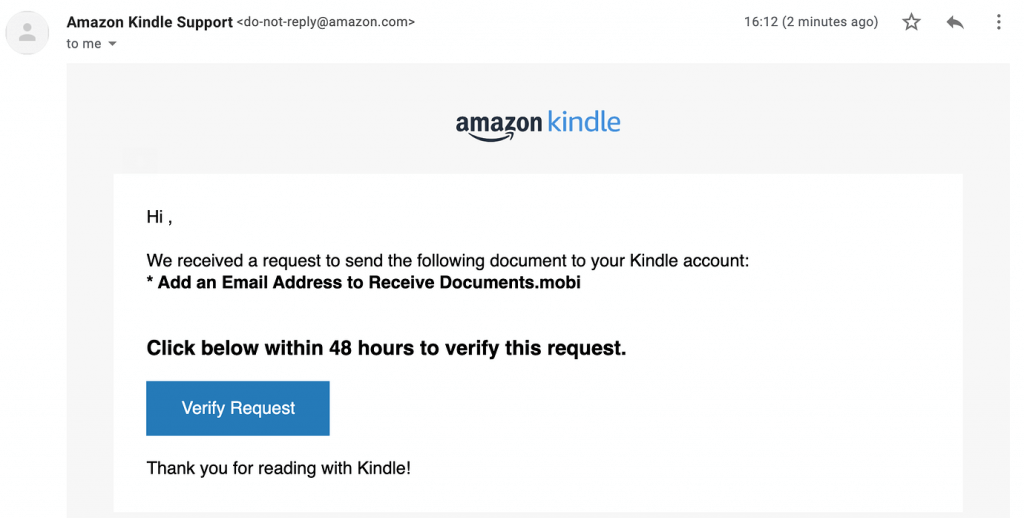This is an update to our previous Patreon post about delivery issues some Push to Kindle users may be experiencing as a result of recent changes to Amazon’s Kindle Personal Documents service. It’ll give a little more background and instructions on how to make sure you’re not affected when sending articles to your Kindle.
If you currently use our default [email protected] address as your ‘send from’ address in Push to Kindle, you’re most likely not affected.
Background
Push to Kindle uses Amazon Kindle’s Personal Documents service to send articles to your Kindle account. To prevent spam to its service, Amazon has always required that documents sent to it come from an address listed in your Amazon Kindle ‘approved’ list. Each Amazon Kindle account has its own approved list and by default the email address associated with your Amazon account is already on this list.
In Push to Kindle, we’ve always given users the option of entering their own email address as the ‘send from’ address. And Amazon always processed these messages without trouble (provided the from address appeared in your approved list).
In 2019 Amazon started requiring user verification for documents sent to its Kindle Personal Documents service. This didn’t affect everyone, but those whose Kindle address resembled their sending address began receiving emails with the subject line “Verify your Kindle document”. The email asked the user to click a ‘Verify Request’ button within 48 hours to tell Amazon that the document should be sent to their Kindle.

So if your Kindle address is [email protected] and you’re sending an article from [email protected], you’ll always receive a “Verify your Kindle document” email from Amazon.
Minor differences between the two addresses will still trigger the verification request, as one Push to Kindle user reported:
I changed my send-to-kindle address from [email protected] to [email protected] but I still received the verification email. It wasn’t until I changed the email to something more significantly different like [email protected] that the article was sent directly without verification.
This is still the case today, but Amazon is now applying even stricter checks when handling emails sent to its Personal Documents Service. This could be in response to recent vulnerabilities discovered by researchers.
It appears Amazon is now checking if the sending server is authorised to send emails on behalf of the ‘send from’ address. Any email system can send emails using a custom ‘From’ address, but because this can be abused to send spam, many systems will flag these messages. Amazon now checks for such messages and sends its verification email to the ‘send from’ address.
How this affects Push to Kindle
If you’ve entered your own email address as the ‘send from’ address in Push to Kindle, you may now be receiving these verification emails from Amazon asking you to click the ‘Verify Request’ button. If you’re not bothered by them, you don’t have to make any changes.
If you’ve been using a made-up email address as the ‘send from’ address, you will need to change this. Previously you could enter something like [email protected], and add it to your Amazon Kindle approved list. This no longer works. Amazon will attempt to send a verification email to that non-existent address.
For both cases above, we suggest using ‘[email protected]’ in Push to Kindle and adding it to your approved list. Because we’re authorised to send messages from the fivefilters.org address, any automatic server checks at Amazon’s end will pass.
Note, however, that Amazon still flags articles sent to its Personal Documents Service if the first part of the sending address is too similar to the Kindle address. This is unlikely to affect most of our users but if you’ve edited your Send-to-Kindle address to resemble ‘kindle’, you might want to change it if you notice articles are no longer getting through. (We do not handle any incoming email at ‘[email protected]’, so any verification emails sent to this address will be ignored.)
We’ve also updated the Push to Kindle web app to show a notice when you use a custom from address.
As always, if you have any trouble, please do let us know.